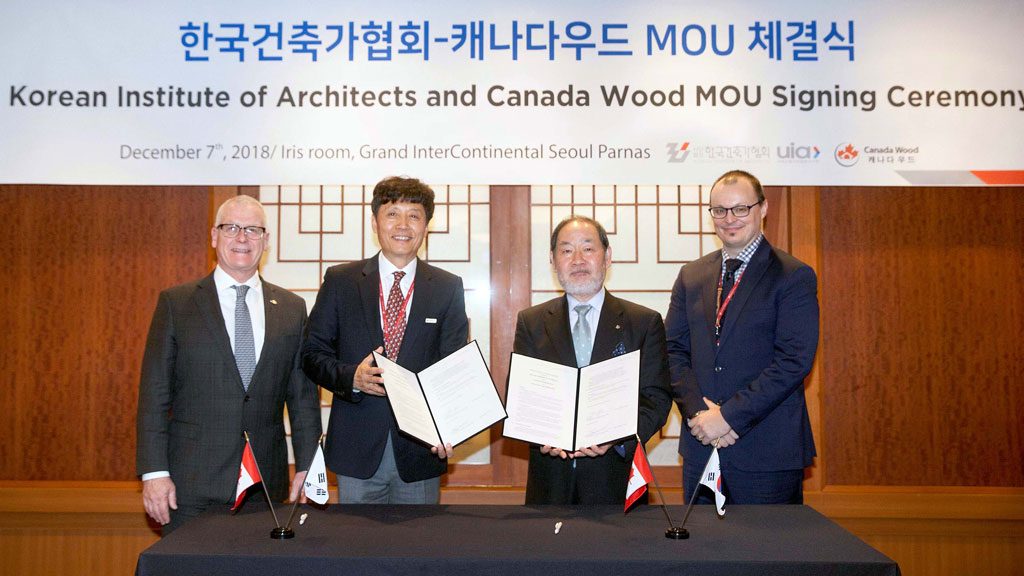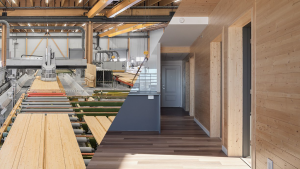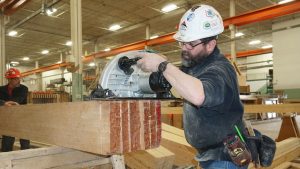VANCOUVER — Canada Wood Korea and the Korean Institute of Architects have signed a memorandum of understanding (MOU) to help Korean architects work better with Canadian wood.
The technical co-operation agreement was signed on Dec. 7 by senior forest industry representatives on the Forestry Asia Trade Mission, which consisted of a group of more than 40 delegates including industry, research, labour, First Nations and government.
The group also visited the Gapyeong Canada Village Project on Dec. 8., which uses wood products from B.C. and other parts of Canada. The village is the result of a 2013 MOU signed by Canada Wood Korea, the Gyeonggi Urban Innovation Corporation and Dreamsite Korea.
“South Koreans’ interest in wood construction is growing because they recognize that wood construction fares better than other materials in the event of earthquakes. By promoting the benefits of wood and sharing technical expertise, we can open up new opportunities in Korea for our province’s high-quality wood products. This, in turn, supports forestry jobs in B.C.,” said B.C. Minister of Forests, Lands, Natural Resource Operations and Rural Development Doug Donaldson in a statement.
The MOU is intended to raise the skill and knowledge levels of Korean architects and designers so they are better equipped to work with wood. The Institute will benchmark Canadian best practices for wood-frame residential housing, wood interior walls and Super-E/Net-Zero housing design, a standard designed by Natural Resources Canada where a home produces all needed energy from renewable sources and releases no carbon from the burning of fossil fuels.
South Korea is B.C.’s fifth-largest market for wood products, with softwood lumber exports totalling over $73 million in 2017.





Recent Comments
comments for this post are closed